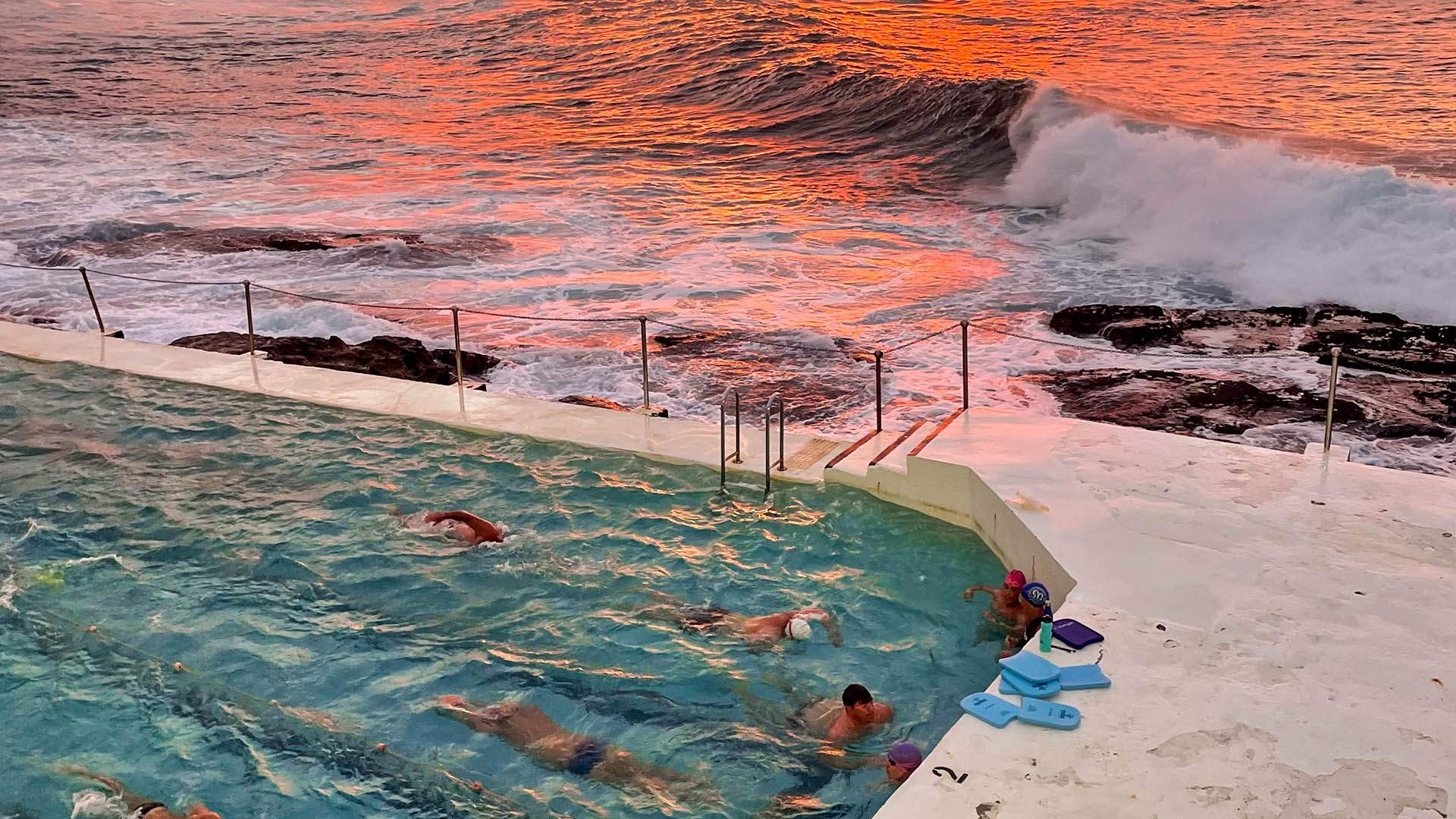Diving Beneath Bondi Icebergs' Much-Photographed Surface in a Documentary Celebrating Community: Ian Darling Talks 'The Pool'
In this meditative film, there's far more to the iconic Sydney spot than being one of the Harbour City's most-famous locations — and the most-snapped pool in the world.
Whether or not you've ever splashed in its wave-filled waters or taken a selfie around its edge, where the pool borders the ocean — or even if you've simply seen images of it everywhere, including sometimes featuring Margot Robbie in Barbie mode — feeling the urge to plunge into Bondi Icebergs is a side effect of watching Ian Darling's The Pool. The yearning to take a dip in your nearest body of water also strikes. Equally radiating from the screen as the Sydney landmark receives a cinematic tribute: the sensation that just by viewing the latest documentary from the filmmaker behind The Final Quarter and Paul Kelly — Stories of Me, you've enjoyed the next best thing to hopping in.
Everyone knows Bondi Icebergs, thanks to about as many photographs as there are grains of sand on Bondi Beach, or perhaps more. It's the most-snapped pool in the world, in fact, The Pool notes. Darling's film explores its allure beyond its scenic aesthetic, even if the movie is stunningly gorgeous to look at (how could it not be?) and perfectly set to a 60s-inspired soundtrack. This is a doco about community, and about why one has formed around the haven of blue at the southern end of Bondi Beach that's been welcoming in swimmers for almost a century.
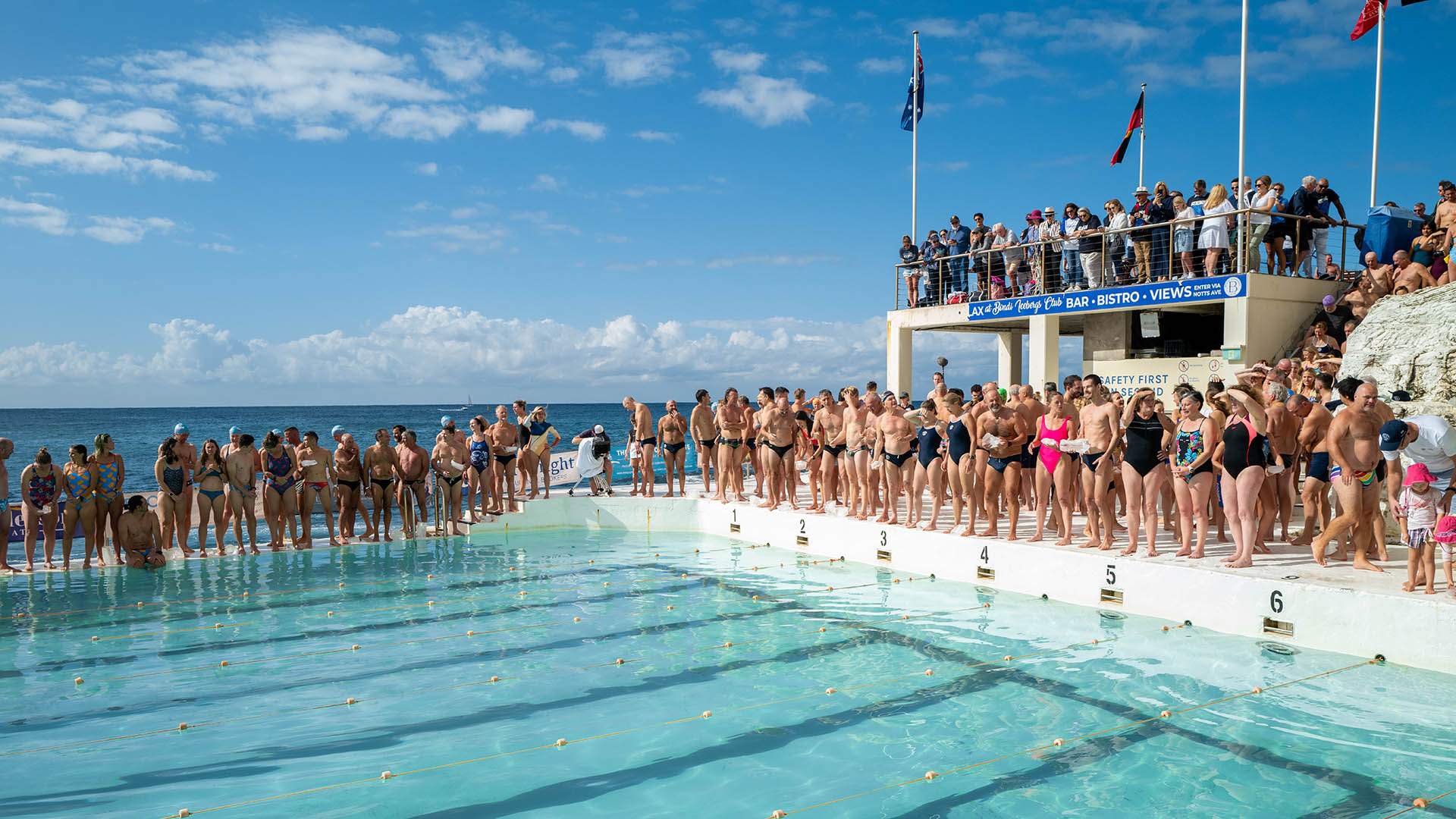
Some come to Icebergs to relax. Others come to train and compete. Some head along with friends and/or family. Others arrive solo, knowing that their fellow swimmers are their friends and family. Some do indeed fill their Instagram feeds with photos, and The Pool sees them. But the film spends its time largely observing the immense cross-section of folks who frequent Bondi Icebergs, from daily devotees to casual weekenders, newcomers to veterans, young to old, and lifeguards and swimming coaches to baristas as well, as they congregate, revel in the spectacular tidal pool's gifts no matter the weather and discover a place to belong in the process.
That's how Darling overcame what might've been a challenge for other filmmakers: diving beneath the surface of a place that is so instantly recognisable, and for good reason. It's also how he's made a movie that is meditative to watch, mirroring what many of its interviewees say about the body of water. And, it's why The Pool has been getting the love flowing from audiences around the country — not just in Sydney, where it fittingly world-premiered at the 2024 Sydney Film Festival; which "was actually quite emotional, because three of the key characters had died in only the month or two beforehand, and this was the first time that a lot of the audience had seen them again," Darling tells Concrete Playground; not only among swimmers as well.
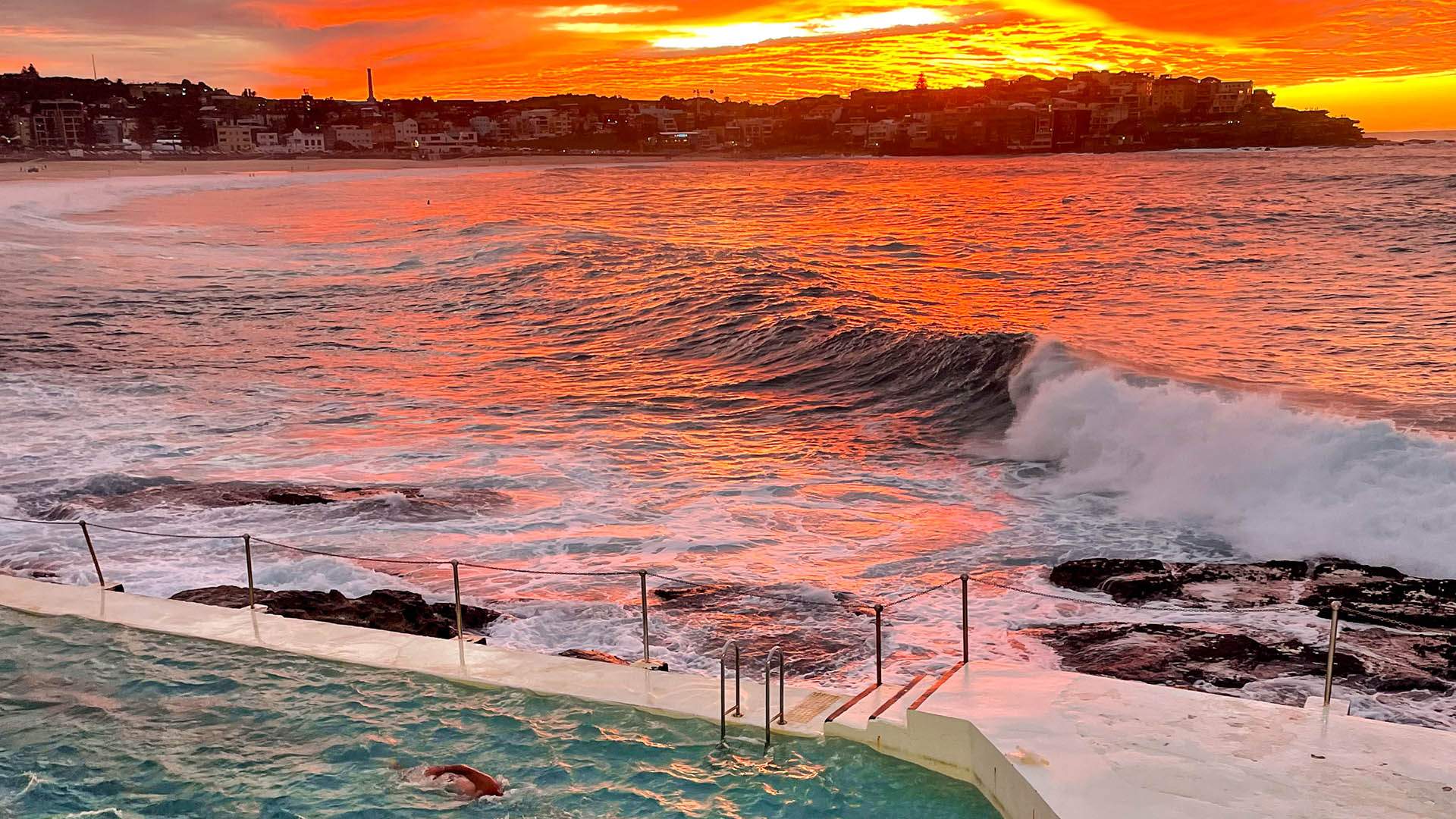
"We've been doing a lot of the film festivals, and so just meeting people all over — after launching at Sydney Film Festival, we went over to CinefestOZ in Margaret River, and then Byron, Sunshine Coast, Adelaide Film Festival. Then we've been doing a few pre-cinema release screenings up at Noosa when the triathlon was on, and Brisbane and Gold Coast," the director notes when we chat in the lead up to the film's release nationwide. "What I'm especially pleased about is that we weren't sure whether it was such a Sydney-centric film that it wasn't going to speak to other audiences, but it it's been wonderful seeing that there are so many common themes in it that it's speaking to people not only all across Australia, but to swimmers and non-swimmers. Which I was surprised about. Coming out of COVID, people are still hurting and yearning for a community, and really putting a greater value on any community they're a part of. And so it's had a much more emotional response than we than we expected."
"I was especially pleased at the screening over at the Orpheum, where a number of people came up — and a couple of ladies who were very emotional said 'we don't swim, but we're part of a book club. And we feel that you've spoken the same language in terms of what we do in our book club. And we value it even more, it's about community and it's about a shared language'," Darling continues. "I was asking them exactly what they mean. She said 'well, we talk about a book and we could see here people were just talking about swimming'. And the penny dropped, and it made me realise that's so much about what we look for in a community — whether it's a film festival where we're all talking the same language, or a book club, or even at a pool. It never ceases to amaze me how long people can talk about swimming. But it is a shared language, and everyone comes from all different walks of life and they have this common link."
Where inspiration strikes as a filmmaker, the 'I need to make a movie about this' moment with Bondi Icebergs, his own first experience with the pool, choosing interviewees, finding the doco's ebb and flow, the importance of community, what Bondi Icebergs both says about and means to Sydney: we also spoke with Darling about all of the above.

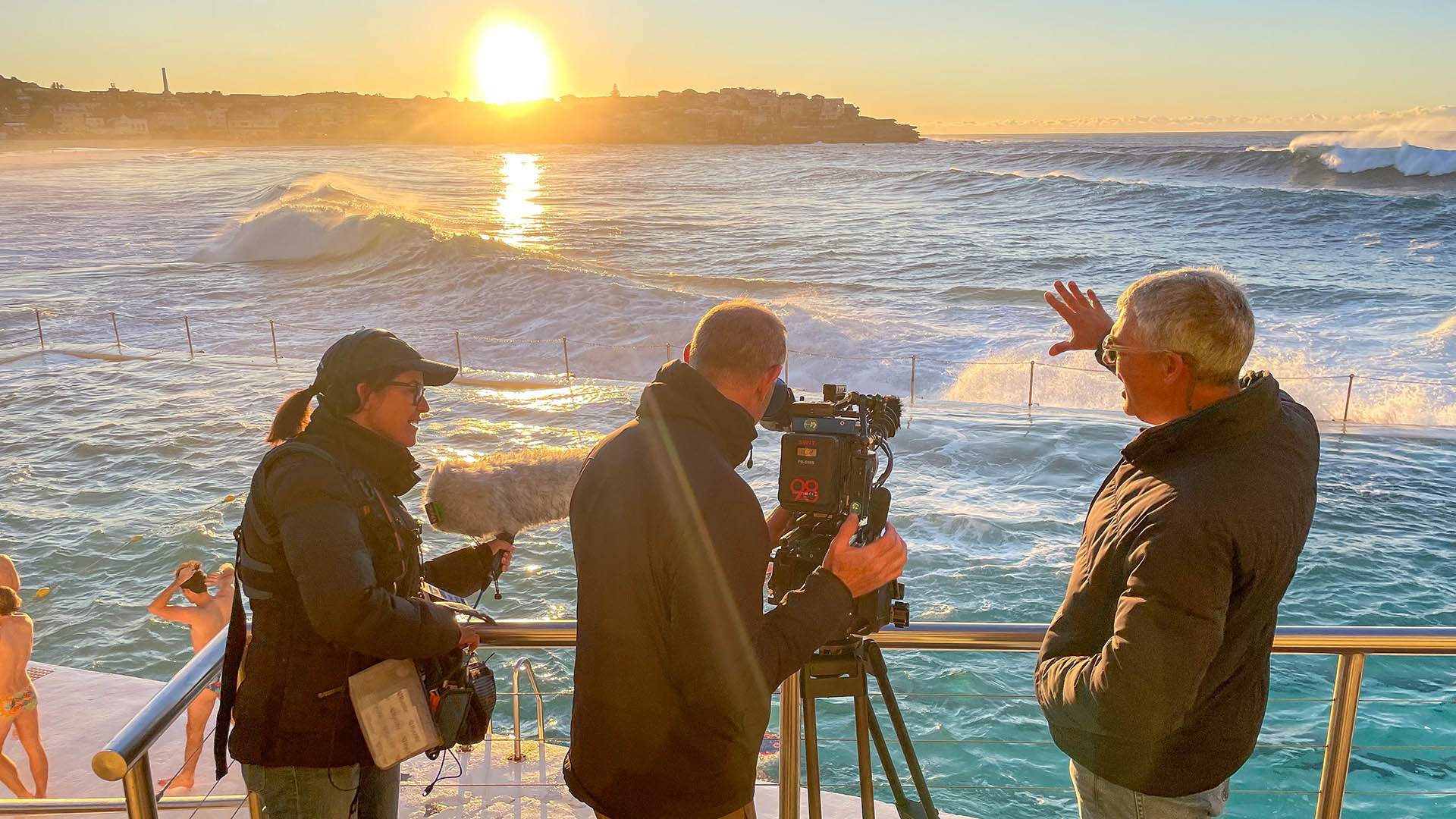
On Darling's First Bondi Icebergs Moment
"I came up from Melbourne in the early 90s, and my wife and I were swimming in the middle of winter at the beach, and suddenly realised how many people were swimming — and coming from Melbourne, I'd never swim in winter. And I was thinking 'how long does this happen?'.
I saw this building down the end — and I wasn't familiar with the Icebergs. And I always was intrigued by it. I actually thought that it was more of a private club. Actually, for the whole of that decade, I never went to it.
When someone told me that it was a public pool in the early 2000s, I remember walking in and it just blew me away. I suddenly actually did feel like I was in a 60s film, and it was one of the most-beautiful places and pools I'd ever swum in. There are so many pools I've swum in and I don't have any recall, but I remember walking in and just feeling like I was in this time warp, and it was a very positive experience."

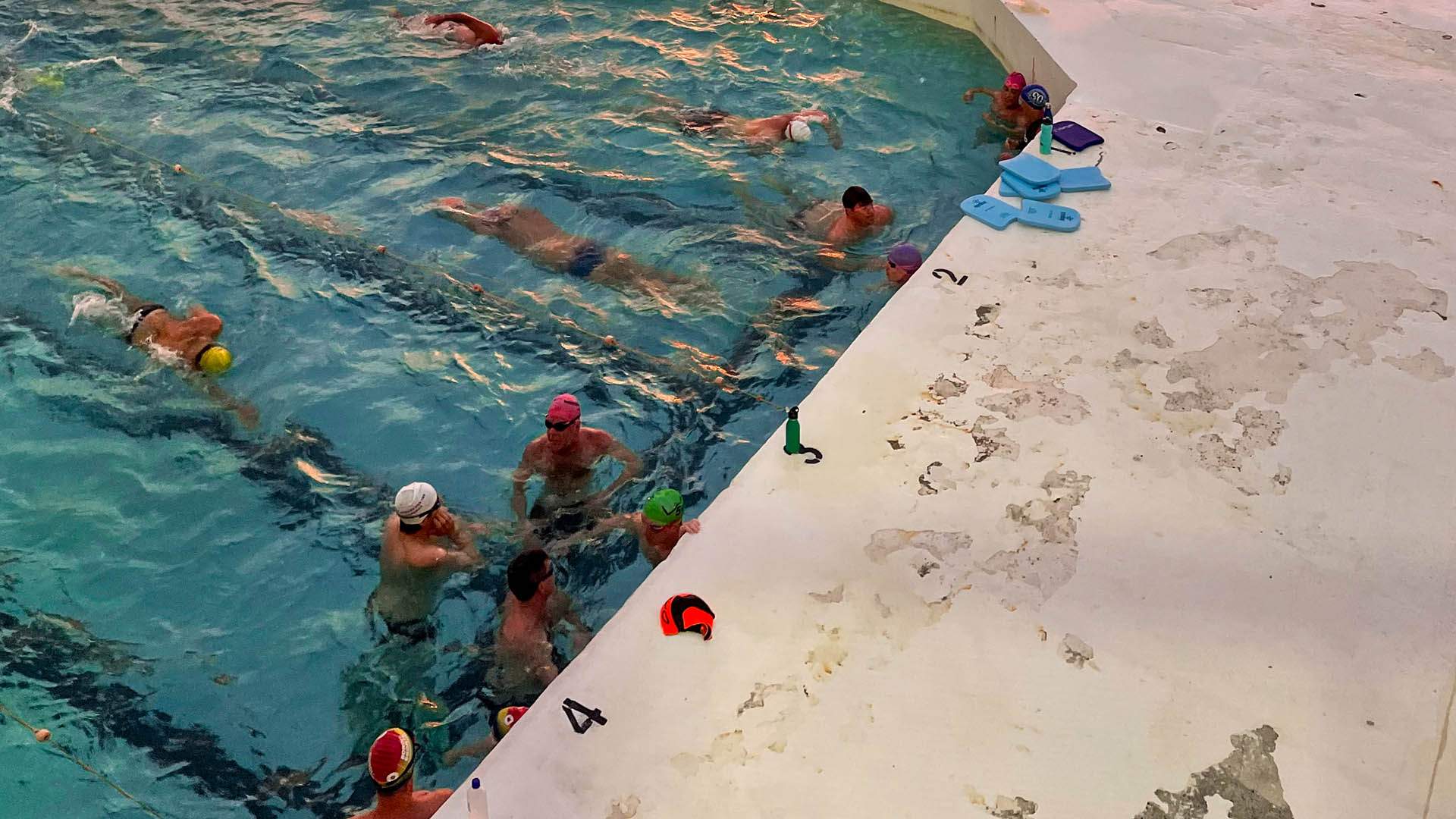
On When the 'I Need to Make a Film About This' Moment Came with The Pool
"I think it was post-lockdown, and I think when we have something taken away from us — we're social creatures and we all realised that that we do need a sense of community. Also having come out of The Final Quarter and The Department on child protection, I wanted to give myself permission to actually make a happy film and a feel-good film, and a film where people could just meditate and contemplate their own life.
I was sitting down at Icebergs with a friend of mine, Marg Simpson-Lee, who's a swimmer. And I was saying 'I'm really looking for something which is a connected story about a community that is uplifting'. And she said 'well, what about here?'. And so it was right under my nose.
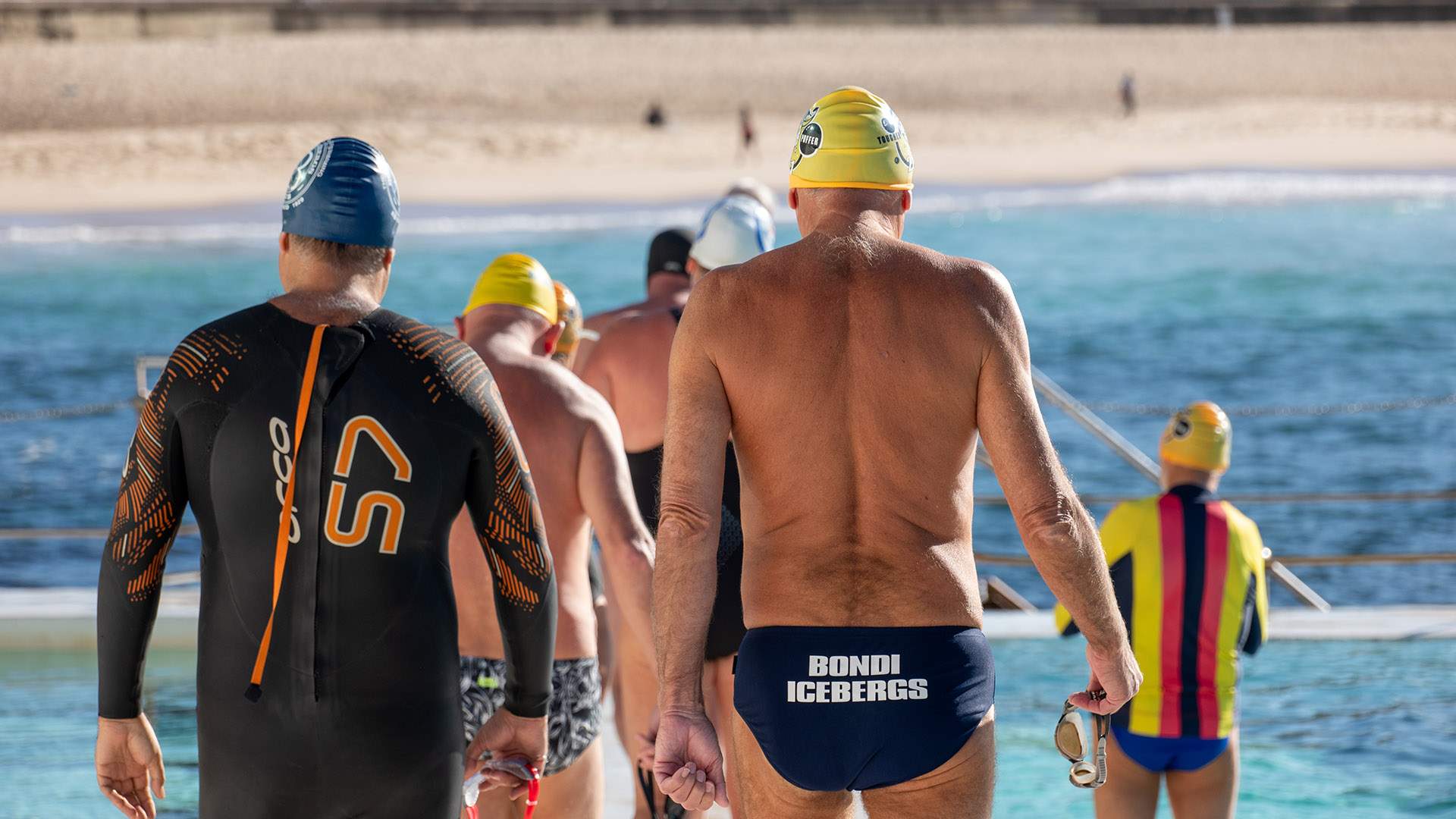
The more I thought about it, I thought 'actually, it is going to give me a platform to tell these stories about community and connection'. So it was as simple as that. I wasn't sure what it meant. And it took us a while to get a sense of how to make it and why we, in the end, decided to make the pool the central character, and let all the other characters, almost like 30 sets of arms and legs, give us context of to what was in there.
But I think I was ready myself as well — I think we often wear the hair shirt as documentary filmmakers, and I had to give myself permission to say 'actually, it's okay to make a film where we just actually sit back and think and observe and hopefully feel happy at the end of it'. So that was the the intent."

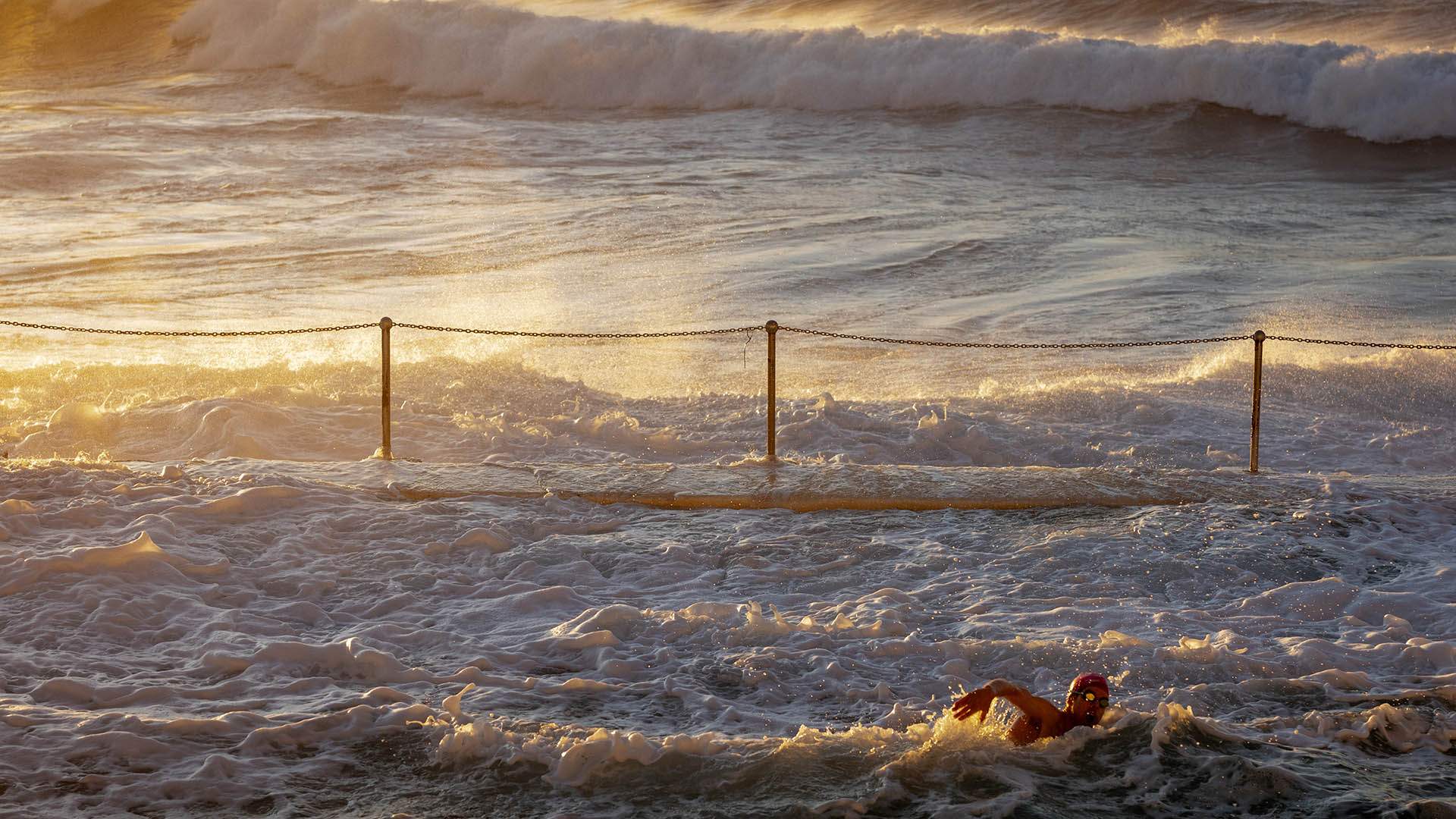
On Digging Into What Makes the Most-Photographed Pool in the World Special Beyond Its Aesthetics
"It's a good question, because I think with the notion of it being the most-photographed pool in the world, with that comes all the connotations of Instagram and body image, and all of that. And we almost wanted the film to be the antithesis of that. One of the things we weren't sure of was how people would feel when we were down there with cameras, because people are perhaps at their most vulnerable when they're just in their swimmers. And we were very aware and respectful of it.
So we had signs up everywhere, and we made sure, our producers went around, that anyone who didn't want to be in the film could come and tell us, and we'd make sure that they weren't and absolutely honour that.
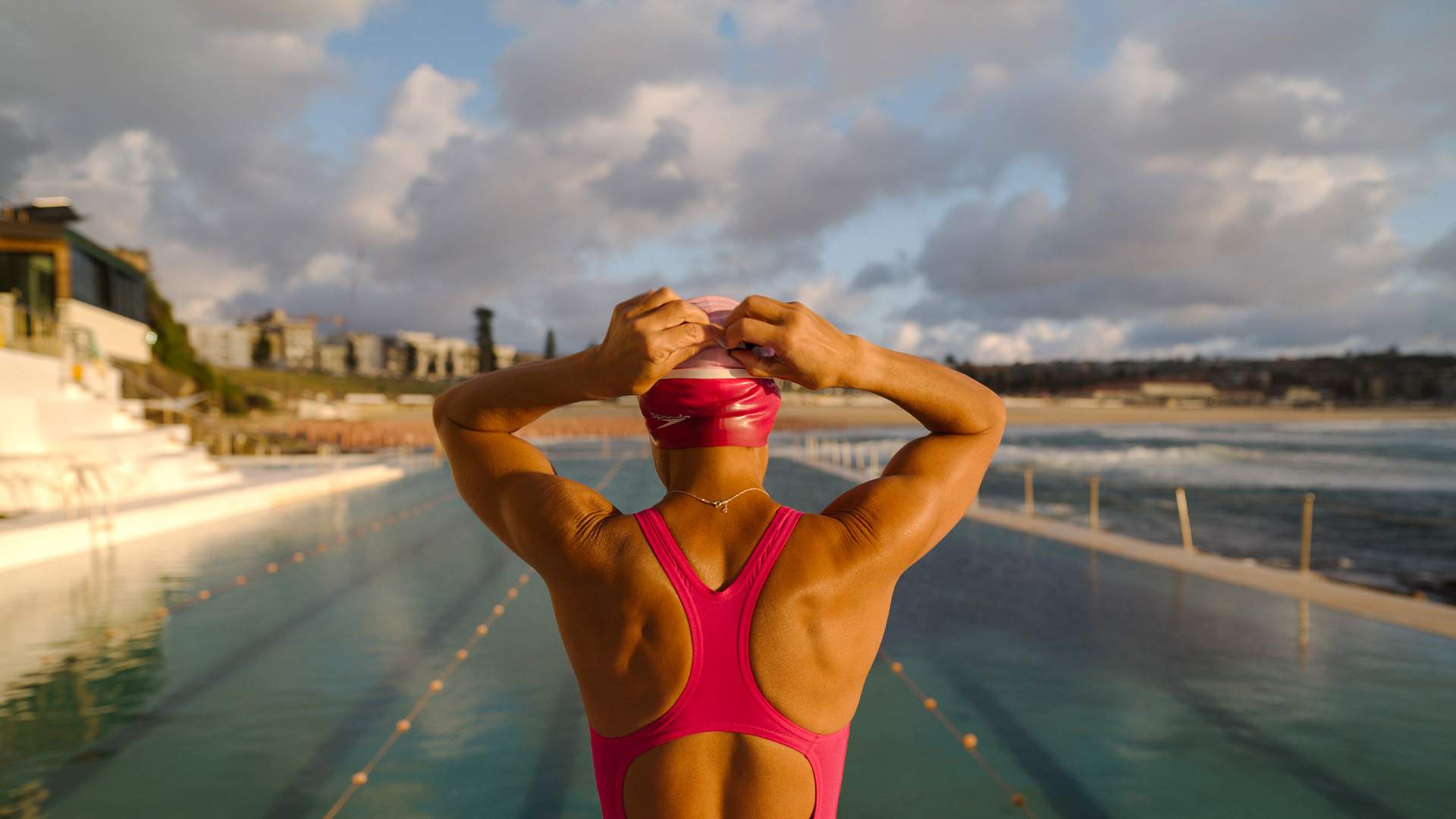
On the first morning, about three people came up and I thought 'wow, this is going to be challenging over the course of the year'. And then over the the whole year, I think only one or two other people came up and said that they didn't want to be in it. So we gained the trust, but it also made me realise that the people down there were actually very comfortable in their own skin, and all different body shapes and all different, all different types.
I think that is very different from the notion of it being the most-photographed pool in the world. It was a very grounded experience, and the pool jumps out as something very beautiful — but I think whenever we were there on weekends, we'd see people doing selfies and everything, and we wanted to reflect that in the film but also highlight that it wasn't the story we were telling."

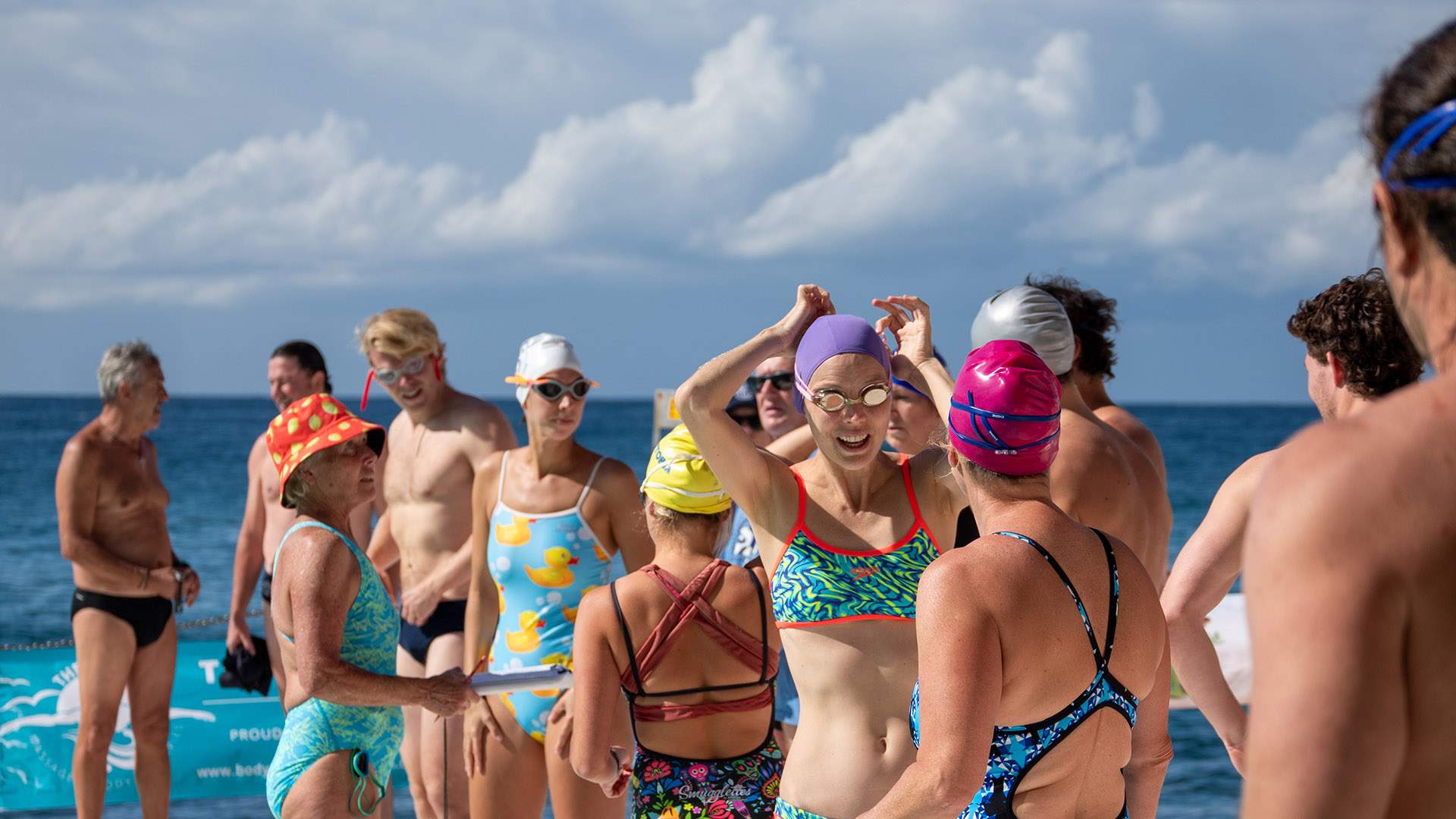
On the Process of Choosing Interviewees From the Bondi Icebergs Community
"On the website, we did 100 full-length interviews — because we never wanted to make the film about the history of the club, but we thought 'well, let's grab a time capsule of history and get the full stories'. And from that, we got a lot of clues. It was almost like an audition. A lot of the characters jumped out, and the stories. We didn't want to make it a character-based film. We said 'let's make the pool the central character, but let's define them by themes'.
So what we saw was the characters were around things like friendship and routine — there are a couple of friends that get there at 13 minutes to seven every morning, and that's a very important thing about commitment. And then there are stories around mental health and physical sickness and endurance, and volunteering and perseverance and fear. A number of the characters were fearful of the water and learning to swim.
So it was more 'how do we represent all those themes?' rather than characters. And so the two went sort of hand in hand. We had so many people that unfortunately we couldn't fit in, more because they told the same story rather than not having a great story. And I think that was the thing, as I was saying before, very few people didn't want to be in it but we I think we upset a number of people who desperately wanted to be in it but didn't make the final cut."

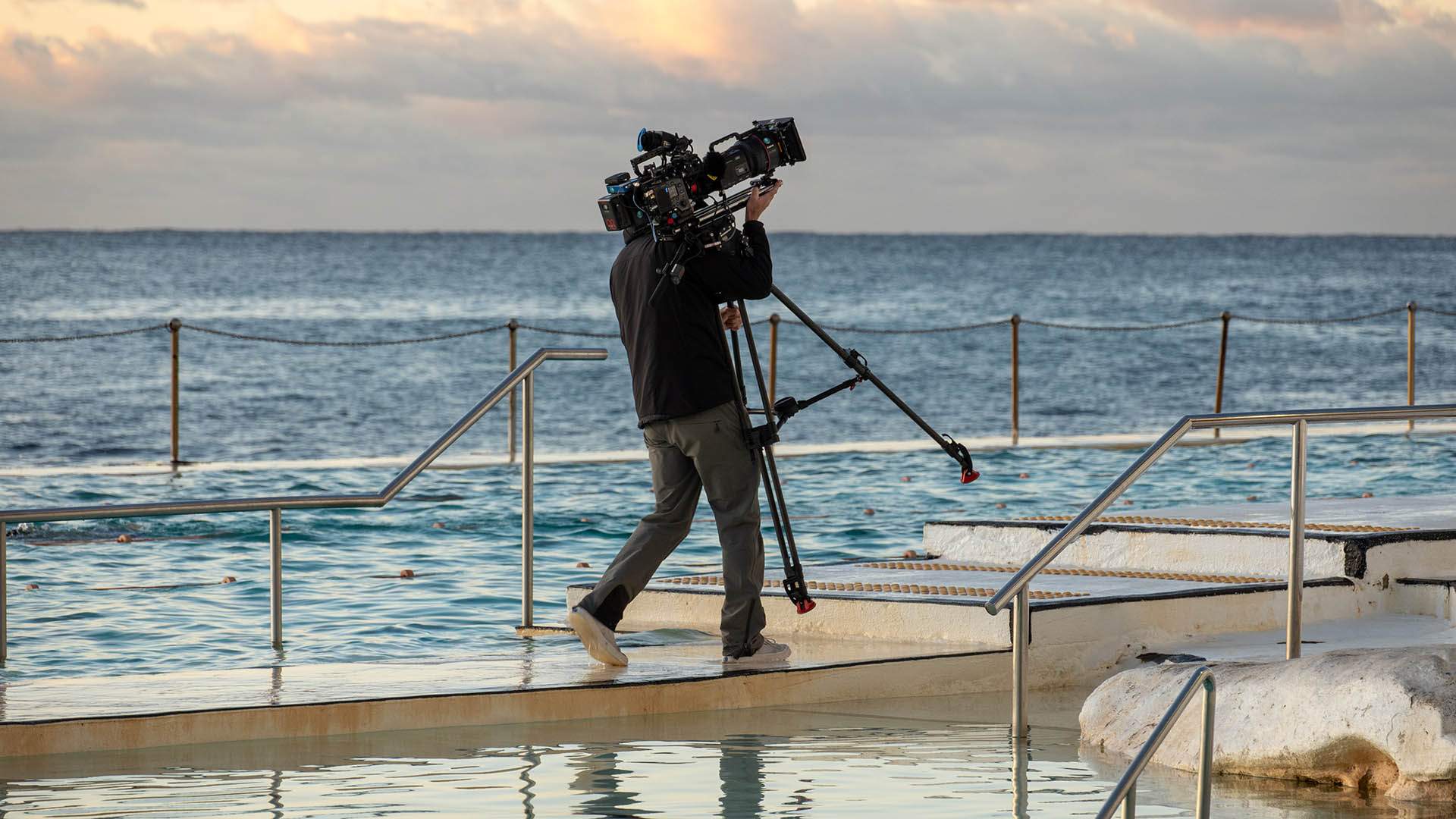
On the Film's Crew Swimming at Bondi Icebergs Themselves for 99 Days of the 100 Day-Shoot
"I think it was an important part. So the only day we didn't swim was the one when the huge storms were there. And I think people at the start of any film are wary when these outsiders come in, and we just we started very gently, but right from the start, we got in. And we started in May when the water was getting really cold.
I think that helped with the locals, when they saw that we were prepared to get in the cold water and that we actually swam ourselves, and that we could speak the same language. I've never really asked them, but I know we were always observed — and I think just in a quiet sort of way that that enabled us to get even closer to everyone.
But also, I thought if we're making a film at a place like this, if we don't actually get in and enjoy ourselves — because when we were at the homeless shelter, that was a three-year film shoot and that was all hours of the night. And when we were there at three o'clock in the morning, I was thinking 'hmm, we're certainly earning our stripes as documentary filmmakers here'. So unashamedly, we thought if we're doing a fun film, let's enjoy it."

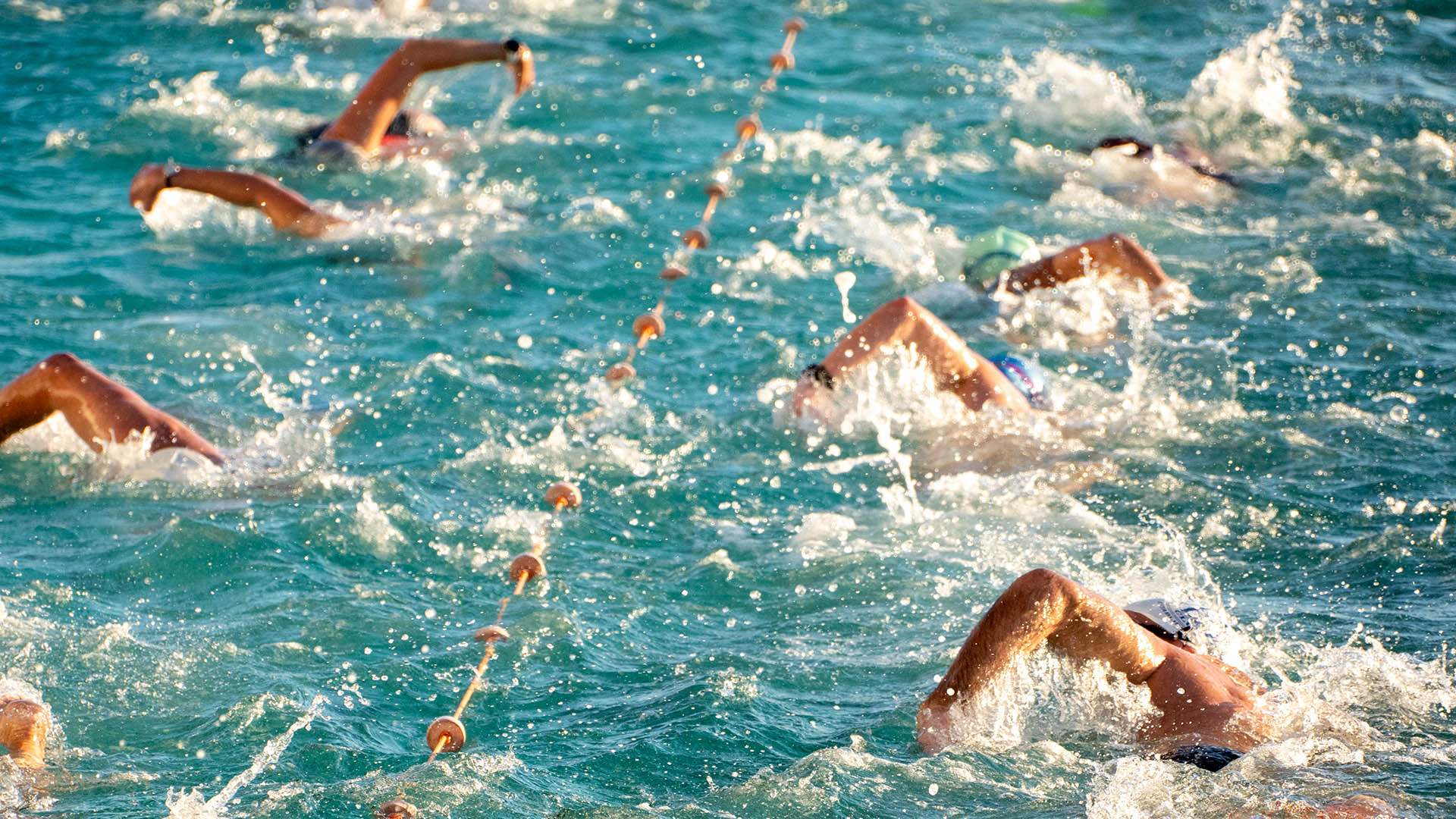
On Making a Meditative Film to Match the Mindset That Bondi Icebergs Can Inspire
"I think we had two intents. One, sometimes we'd jump into a scene of a storm or the word of the coach and everything — it's quite bracing when you jump in the cold water. But also, the meditative nature we thought was really important. I think we've forgotten sometimes just to sit when we're on top of a mountain, just to look out and not look at our phone. And I thought it's really important for us just to have a feeling of what it's like just to sit and look at the waves, and that it's actually okay to sort of — bored is not the word I'd want to use in a film, but it's actually okay to do nothing.
So we have an unusually long opening-credit sequence, but we wanted to play the whole of the Cream song 'I Feel Free' and just get people into the rhythm. Sometimes, I certainly know at the theatre when I'm there, sometimes I go 'wow, ten minutes has gone and I haven't been concentrating'. It can take us a while to get into it, so we thought let's just try and set up the rhythm of the film so that audiences give themselves permission just to sit and get into that meditative state.
It felt like it was in sync with the intent of when you're swimming, because we wanted to make it immersive. But also I think sometimes it is good to let audiences — and a number of them have said during those meditative sort of scenes, the swimming or a storm or the purple tumble turns scene, that that's where they're actually thinking about their own place in a community. Or they're yearning for it. And so people have been doing a lot of self-reflection during the film as well, and that's really pleasing, because that was the intent as well."

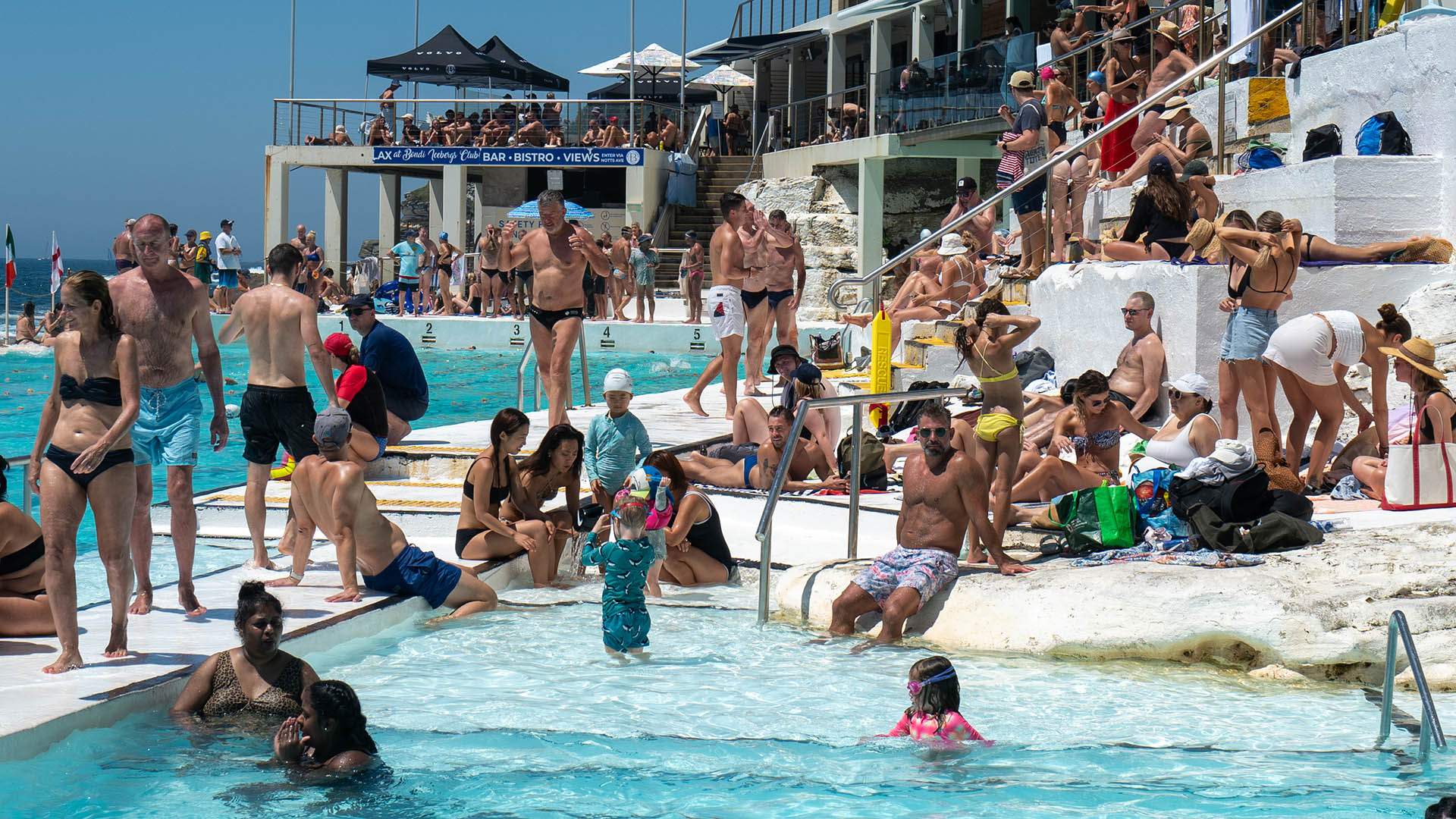
On What Darling Learned About the Importance of Community From Making The Pool
"I think it really is that sense that we all need to be a part of a community and we all need to find people that share a common language — and, as I say, it means we can talk for hours about swimming or films or whatever. That, as a community, we deeply have this yearning to connect. And when it's taken away from us, we really miss it. If we haven't got it, we're yearning for it. It's such an important part of — at a pool, our physical health, but I think the most important thing is around our mental health.
And as time goes on, we've got to ensure that cinemas remain open as a shared experience and that pools remain open. So many pools are closing, and we're going to do a bit of a campaign to try to get every mayor and council to come to watch the film, and actually see the importance that a local pool has on a community.
As I say, so much of it is just around that connection, a meeting point, the importance of being with others. And I think that was very much the intent of the film, just to show how we do have to keep working hard at creating these gathering points, because the health of the community is very much dependent on them."

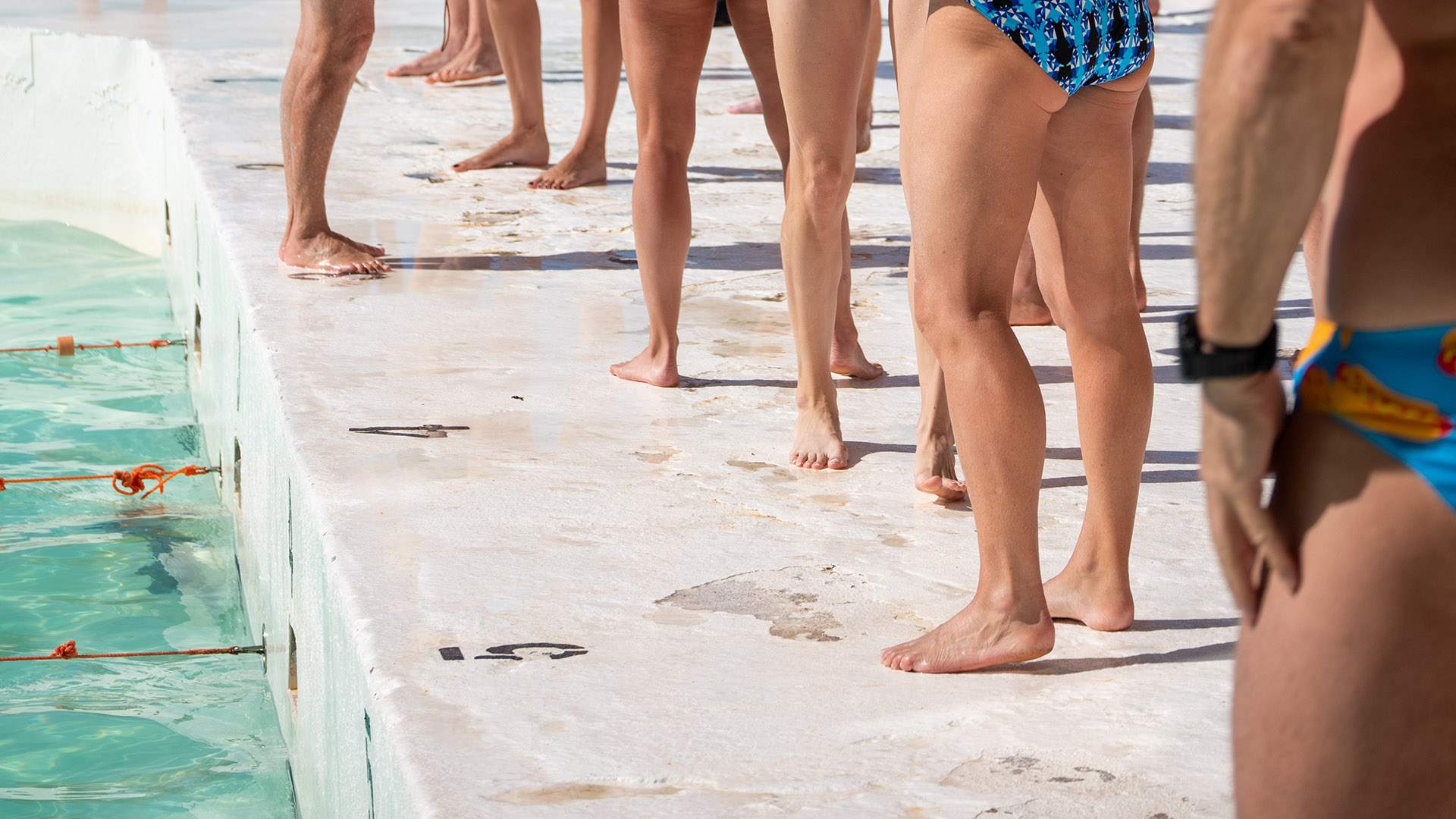
On What Bondi Icebergs Means to Sydney — and Says About It
"It says 'look at me', which is one of the things that, coming from Melbourne, where there are different seasons and everything, Sydney seems to have one season and it's sort of saying 'look at me' — which can be positive, but also I can be cynical about it.
So that's on the surface, but I think it also says 'have a look below the surface and you'll find something that's far more profound and grounded — and if you are looking for a community, you'll find people with a common language there;.
At the outset, it's a shining beacon and a tourist destination. The amount of times we've heard people go 'oh, I've had that swim. It's been on my bucket list'. People like to go to Bondi Beach. They'd like to go to the Opera House. In Queensland they love to go to the Gold Coast or the Barrier Reef. As a destination for Australians, but also as tourists, I think it's very much an important part of — unashamedly Australia has a strong beach culture, and I think it reflects that as a piece of beach history."

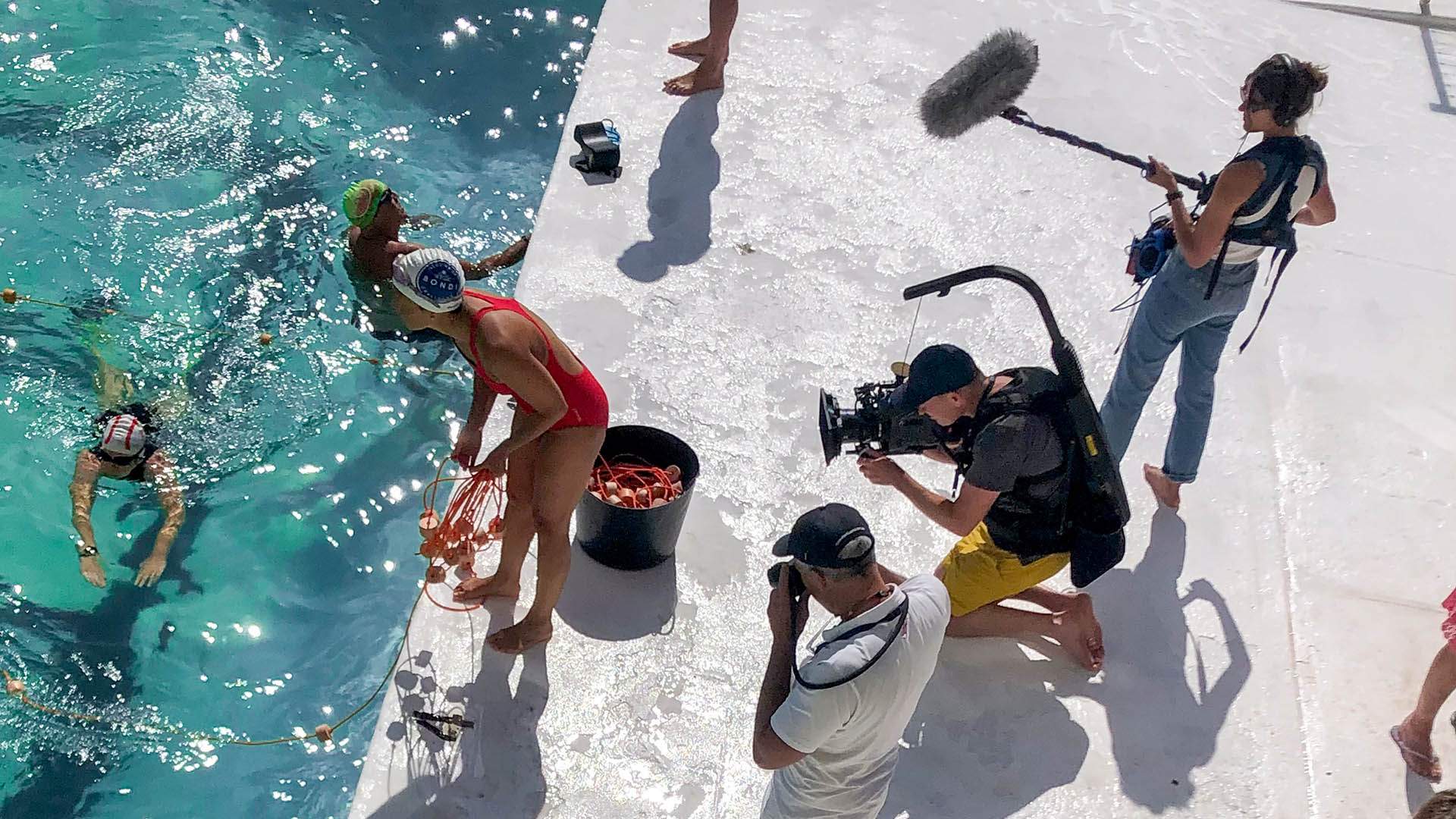
On Where Inspiration Strikes for a Filmmaker with Documentaries About Everything From Bondi Icebergs, Adam Goodes and Paul Kelly to Capitalism and the Welfare of Homeless Youth on His Resume
"Because I've had so many films that have fallen over, answering this way, typically the films that have fallen over are ones where I haven't had a strong-enough contact or connection with the subject matter. I'm a pretty slow filmmaker, most of the film shoots have been at least a year, and we take a long time in the edit suite. And I think to go on that long journey, I have to have a real interest in it.
So with this one, The Pool, swimming's my main physical activity. I'm not a member of Icebergs, but I like cold-water swimming, so that gave me clues.
With Adam Goodes, I'm a huge AFL fan and I go out every week — and we were thinking before he retired, actually, because he was one of my favourite all-time footballers, of making a film on him in his twilight years. So it ended up being a very different one, but having been so aware of it and been in the crowds when he was being booed, and being there when he was celebrated, suddenly he retired and I thought 'wow, are we going to' — I was just confused — 'are we going to let history be rewritten?'. So it took a few years but it just never left me, I think because I'd had such an intimate relationship with watching him as a player. I hadn't met him at all until we spoke about the film, but he was certainly present.
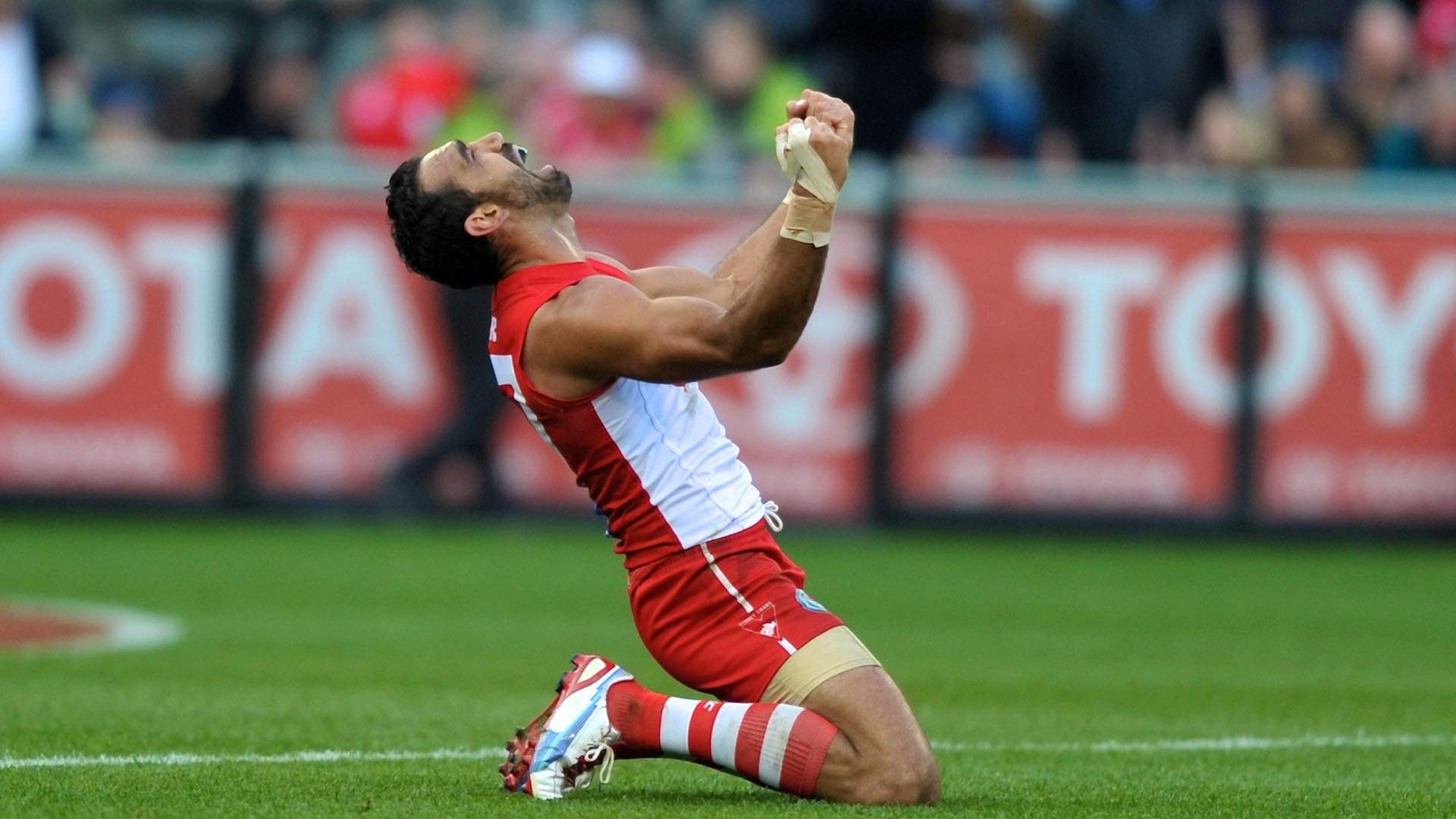
29th September 2012, The Age Sport, Picture by Wayne Taylor
And then with Paul Kelly, I grew up in Melbourne — and in the 80s, just the Melbourne band scene was just extraordinary, and Paul Kelly spoke to me like no other sort of musician had. And again, I hadn't met him until we sought his approval, but he was my favourite musician — which can be dangerous, making films about your hero, as such.
Then with the homeless, I'd spent a lot of time volunteering at this homeless shelter in Sydney and really got to know a number of the street kids, and just saw that homelessness was totally off the agenda, and felt it was really important to bring it back and try and put it into every home. We got a lot of philanthropic funding to present a report to the government.
It's those sort of things, where I've had a connection and felt that I was in a place to be able to tell a story."

The Pool opened in Australian cinemas on Thursday, November 7, 2024.
